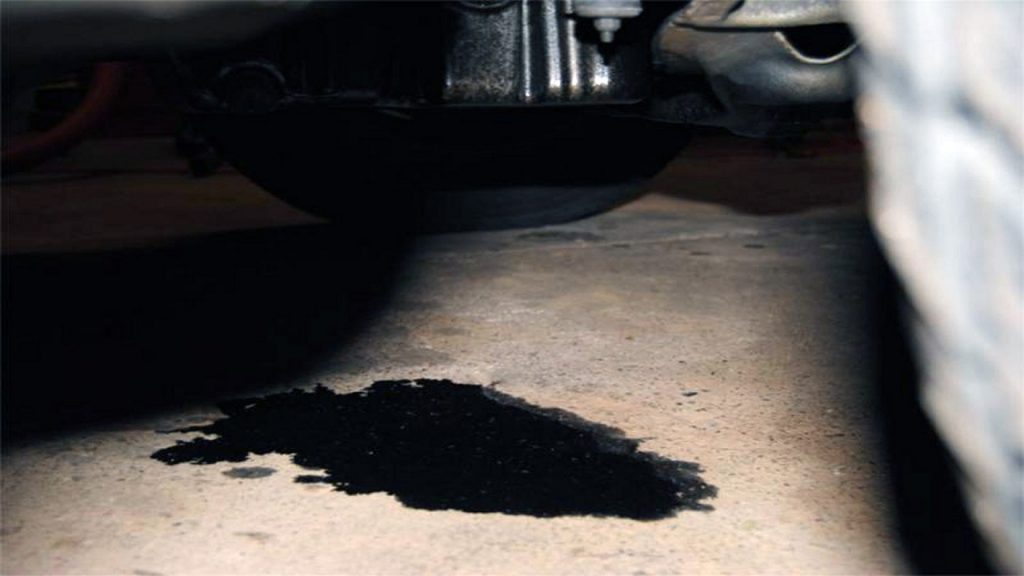Oil is an essential component of any vehicle’s engine. It’s what makes your engine thrive, having many different uses. One of the main benefits of oil in your diesel engine is to keep your engine well-lubricated and to keep all the engine’s compartments moving separately without causing any friction between each other. If there isn’t enough oil in your diesel engine, it causes the components to create friction, making the parts wear quickly.
Oil leaks can appear in large drops or little puddles, depending on the cause of the leak. Below, we’ve outlined the common symptoms of oil leaks, followed by reasons your diesel engine may have an oil leak and how often you need to change your diesel oil to ensure your vehicle operates at an optimum level.
Symptoms That Your Vehicle Has an Oil Leak
- The smell of burning oil
- Puddles or oil stains underneath your vehicle when parked
- Blue smoke coming from the exhaust when driving
- Oil levels on the dipstick gradually dropping low
- The oil level symbol on the dashboard is lighting up
- Engine overheating
Reasons Your Diesel Engine May Be Having an Oil Leak
- Worn-out gasket
Other than putting the wrong oil in your diesel engine, a worn-out oil seal gasket is a common cause of an oil leak, allowing excess oil to enter your engine’s combustion chamber. This results in the leftover oil burning, causing blue smoke to come out of your exhaust when driving.
- Bad oil filter
Your engine’s oil filter could be loose, misaligned, or worn-out. Depending on the model and make of your vehicle, there may be other components within the filtration system that may be causing the oil leak. To prevent this, ensure you change your engine’s oil filters when changing your oil or at required intervals. While changing your oil filter, also ensure that it’s fitted correctly.
- Missing oil filler cap
It may sound insignificant, but if your oil filler cap doesn’t fit properly or is missing, it may cause the oil to spill out. The pressure coming from your engine causes this, especially when the vehicle is running. Ensure that you check if your filler cap is fitted well. If it’s missing, it’s best to replace it immediately.
- Damaged oil pan
When your vehicle’s oil pan is damaged, it may cause minor to severe oil leaks. Damage to the oil pan can occur when your car has run over large boulders, rocks, or sadly, even animals, leaving the oil pan on the underside damaged. If you’re involved in any of the mentioned situations, ensure you have your car checked and the oil pan replaced at the repair shop, to avoid any oil leaks.
- Loose oil drain plug
The oil drain plugs are usually located at the base of the oil pan. If the oil drain plug is loose, misaligned, or worn-out, it could cause oil leaks. This is easy to identify when you check on the underside of your vehicle; you’ll find that there’s fresh oil around the plug, and most likely, it will be dripping down the side of it.
If you’re unsure why your diesel engine is experiencing oil leaks, it’s always best to have your vehicle checked by your mechanic to prevent any further damage to your engine.
How often do you need to change your diesel oil?
For many typical gas-powered vehicles, the recommended oil change is usually around every 3,000 miles or three months. For diesel trucks, however, this isn’t the case. A diesel-powered truck can go for longer between oil changes, and this depends on:
- The terrain and climate in which you drive in
- The activities you perform with your vehicle – does it tow a trailer? Are you using it for off-roading or just daily use?
- The type of oil you use could be full synthetic oil, synthetic blend, or conventional oil.
Driving habits may also impact how frequently you have to get your oil changed. If you take shorter trips around town and rarely drive the highway speeds, you’ll need to change your oil more often than a frequently traveling person at highway speeds. When you operate at lower speeds and temperatures, gunk quickly accumulates in your oil. Your oil becomes contaminated when compared to a diesel truck driven at high speeds and in hotter climates.
While you’re in traffic, your engine can idle for long periods. This can also accelerate the decline of your engine’s motor oil. Luckily, diesel engines react better to long periods of idling than gas-powered engines, but it’s still a concern. Your diesel oil change frequency will be determined by the heavy miles you cover over what period.
It’s always recommended that you still inspect your diesel engine oil quality and viscosity a minimum of every 5,000 miles. Ensure you perform a complete oil filter and lube when your vehicle hits the 7,500-mile mark. Check your owner’s manual for your Chevy Duramax, Ford Power Stroke, or Dodge Cummins and see what intervals your truck’s manufacturer recommends you change your diesel oil. If you remain within the 7,000-mile target and replace your engine oil and filters when necessary, your diesel engine will run for a very long time.
The process of changing your oil for your diesel-powered truck isn’t different compared to the standard gas-powered engine oil change. The only differences you’ll see are the type of oil you’ll use and the frequency in which you’ll need the service. The cost of a diesel oil change is sometimes higher than the gas-powered counterparts because diesel oil and fuel are generally more expensive than petroleum products.
Diesel engine parts don’t come cheap, so you should ensure that your diesel engine has enough oil, so that all the parts and components are working well and won’t wear quickly. When you need original and quality diesel engine parts, go to https://goldfarbinc.com/.
